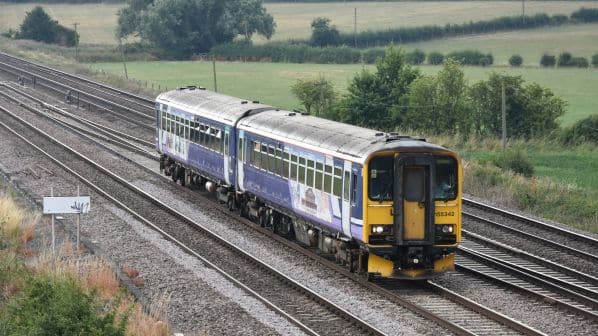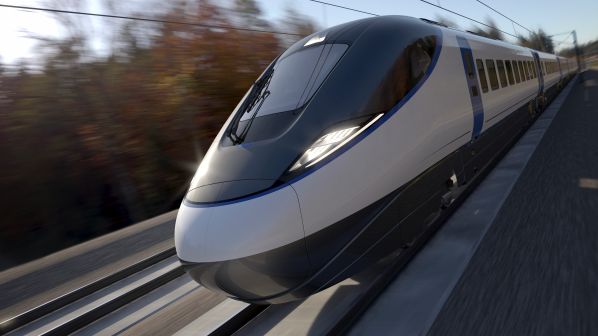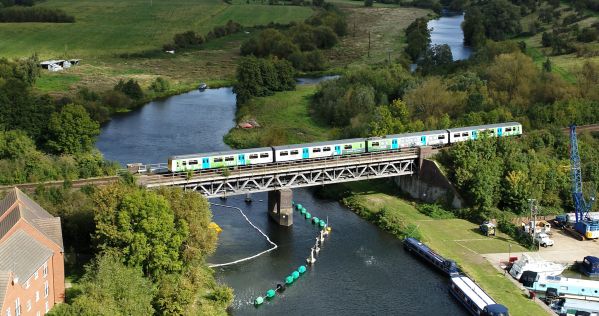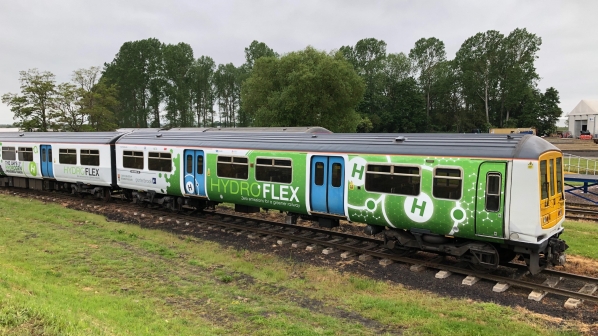A report by the Railway Industry Association (RIA) that represents Britain’s rail supply sector says that the government needs to act now on new train orders in order to avoid an “an imminent existential risk” to the domestic supply chain.
In its report, The UK Rolling Stock Industry - making 2023 the year of opportunity not crisis, RIA says that there have been no significant orders for new passenger rolling stock in Britain since Alstom and Hitachi were awarded a £1.97bn contract to supply 54 high-speed trains for High Speed 2 (HS2) in December 2021.
As production to meet previous orders is due to end by 2026, RIA says that some major train-building factories will run out of work in less than 12 months, putting thousands of jobs at risk unless action is taken soon.
“Britain will not be able to upgrade or renew trains if the factories and skilled workers are no longer there,” RIA says. It adds that this is a major strategic industry employing over 30,000 people and contributing at least £1.8bn to the economy.
The report therefore makes an immediate recommendation that government bodies that act as clients or are responsible for authorising new train orders, including the Department for Transport (DfT), the Treasury and devolved bodies such as the Scottish and Welsh governments, should decide this year to allow the procurement and private financing of rolling stock.
RIA says that 2600 vehicles should be upgraded or replaced by 2030 to secure the supply chain and improve passenger services, reduce carbon emissions and improve air quality. For these reasons, consideration should also be given to upgrading or renewing the 1650 DMUs that will reach the age of 35 after 2030.
“These decisions do not need large upfront public investment, there is a well-used private sector route to deliver upgraded or new rolling stock,” the report says, with costs spread over time and repaid through the leasing charges paid by passenger operators to rolling stock leasing companies.
The report also says that costs are likely to be offset by preserving competition in the market, protecting skills and domestic production capability in Britain and increasing operator revenue by improving the passenger experience.
In the medium-term, the report recommends that government clients should work with RIA to develop a long-term rolling stock and decarbonisation strategy, considering passenger experience, carbon reduction, air quality and the sustainability of the supply chain.
The strategy should also aim to smooth out the cycles of “boom and bust” in rolling stock orders that have long been a problem for the domestic supply industry, and to create the conditions for increased productivity and reduced whole-life cost.
The report also recommends that the government’s aim to remove all diesel-only passenger and freight traction from the network by 2040 should be replaced.
Instead, there should be a strategy to maximise the cumulative reduction of carbon emissions by “the most appropriate means through both direct decarbonisation of rail and through modal shift,” but no new diesel-only trains should be ordered.
“With the last mainline order being over three years ago and no visibility of new orders for upgrading or renewing rolling stock, we are once again facing the prospect of job losses and factory closures,” says RIA technical director, Mr David Clarke.
“These closures would have a deeply damaging impact, with jobs, passenger satisfaction, value for money and the drive to decarbonise all undermined by the upcoming trough in the boom and bust funding cycle.
“This RIA report is clear that rolling stock orders are required now. These should be ‘no-regrets’ decisions for government as they wouldn’t require upfront taxpayer investment but would result in a broad range of benefits, from retaining jobs to immediate carbon and air quality improvement and a better experience for passengers.”
For detailed data on rolling stock orders around the world, subscribe to IRJ Pro.




